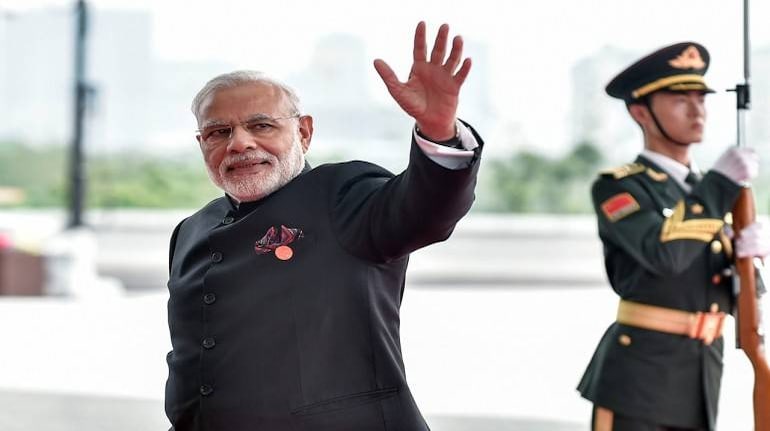
Jindal Steel & Power’s MD and CEO Ravi Kant Uppal – an infrastructure veteran of more than 37 years, having scaled the heights at heavyweights like Larsen & Toubro, ABB India and Volvo India. But it takes more than that and more than an IIT or an IIM degree – Uppal has both from Delhi and Ahmedabad respectively – to speak your mind in a usually surcharged atmosphere like India’s.
Speaking to Moneycontrol, Uppal spoke extensively on wide-ranging subjects including the one close to his heart -- what India needs to do to improve its infrastructure.
While Uppal, like most of his ilk, thought the Modi government had caught the bull by its horns, he believed the current regime needed to involve the private sector more and more. Uppal said the government should combine its resourcefulness with the “enthusiasm, exuberance and the speed of the private sector” to provide what would be a “lethal combination.”
“I think this is the first government which has really held the bull by the horns. At least they have identified all the areas we need to address. Whether it is about skilling India, it is digitising India or building smart cities or building the infrastructure. Now the question is how fast we can really execute those intentions. It is a tough task,” Uppal told Moneycontrol.
He said the public sector can’t match the execution skills of the private companies. Uppal said countries like the US and those in Europe too had their share of people resorting to unethical practices but that should not stop the government from encouraging the private sector.
“We are like crabs in a pot...the private sector should not be seen with suspicious eyes,” Uppal, also a Wharton graduate, said.
Uppal said the government’s move last year to set minimum prices below which steel could not be imported – termed as minimum import price (MIP) to check cheap Chinese imports – had helped the steel sector a lot and the industry owed a “big thanks” to the Modi regime for it. Other steps like quality control on imports too helped, he said.
“They have priorities brought out, which is very good. They are trying to execute as much as possible. In execution, they have to improve. It takes a while before you learn all the ropes of execution. My only one dollar advice is that they must give a bigger role to private. Just get them involved, set the competition. You see them go. See the wonder. It will completely change the game,” he said.
He cited the example of the role the private sector had played in expanding the installed power capacity in the country during 2009-2017, before which it was mostly absent from the country’s power generation map.
“...Between 2009 and 2017, 85,000 MW of thermal power capacity came in the private sector. That’s where the accelerator was. So if you had left it to NTPC or state electricity boards, just imagine you would have never hit that high. So this shows that if you have enthusiastic and highly energised private sector espousing a cause, you are in the game. I think you should allow that. We are like crabs in a pot...private sector should not be seen with suspicious eyes,” he said.
Uppal said that the absence of a sense of security and over leveraging were holding the private sector back. He said few in the country had the wherewithal to make the kind of investments core sectors like steel, cement, power and petrochemicals needed.
“A million tonne steel plant, it takes you investment of $1 bln. A thousand megawatt plant costs you USD 1 billion. A billion is a lot of money and any promoter who has to come in, he puts in 15 to 20 percent of his equity. How many guys in this country have USD 200 million cash with him and if he has cash, he wants security. At the end of the 3-4-year project, he doesn’t want to be told that there is no demand for your product. So he is doomed. Therefore, today, we have a paralysis of a kind,” he said.
He said a hybrid model which let the private sector manage the operations along with a financial contribution of both the government and the private promoter was most suited to execute the capital-intensive, long-gestation infrastructure projects.
Discover the latest business news, Sensex, and Nifty updates. Obtain Personal Finance insights, tax queries, and expert opinions on Moneycontrol or download the Moneycontrol App to stay updated!